Wolfgang Amadeus Mozart, baptized as Johannes Chrysostomus Wolfgangus Theophilus Mozart, was a prolific and influential composer of the classical era. Born in Salzburg, Mozart showed prodigious ability from his earliest childhood. Already competent on keyboard and violin, he composed music from the age of five and performed before European royalty. Take a look below for 30 more interesting and awesome facts about Wolfgang Amadeus Mozart.
1. At 17, Mozart was engaged as a musician at the Salzburg court, but grew restless and traveled in search of a better position.
2. While visiting Vienna in 1781, he was dismissed from his Salzburg position.
3. Mozart decided to stay in Vienna, where he achieved fame but little financial security.
4. During his final years in Vienna, he composed many of his best known symphonies, concertos and operas, and portions of the Requiem, which was largely unfinished at the time of his early death at the age of 35.
5. He composed more than 600 works, many acknowledged as pinnacles of symphonic, concertante, chamber, operatic and choral music.

6. Mozart is among the most enduringly popular of classical composers, and his influence is profound on subsequent Western art music.
7. His father, Leopold Mozart, was a native of Germany and he also composed music, but was primarily a musician for the Prince Archbishop of Salzburg and pedagogue. He wrote a violin textbook that was well received when published in the year that Mozart was born.
8. When he was just three years old, Mozart would listen to his sister’s instruction on the clavier and begin to strike thirds, being delighted with the blending of pitches.
9. His parents had six children, but only he and his eldest sister, Maria Anna, nicknamed “Nannerl” survived infancy.
10. From the time he was seven years old, he began traveling with his father and family to perform in various locations around Europe. Notable locations include the Imperial Court in Vienna and Prague, as well as Courts in Munich, Paris and London.
11. His first symphony was written when he was only eight years old.
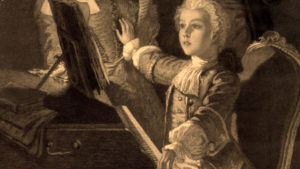
12. During the years when his family toured, he met a number of important influences, including J.C. Bach, who he visited in London in 1763 to 1766.
13. While traveling with his father to Rome, having heard of Allegri’s Miserere in the Sistine Chapel, Mozart transcribed it from ear, creating an unauthorized copy of a work that was jealously guarded by the Vatican.
14. Like many artistic personalities, his life was characterized by volatility, and periods of prosperity and enthusiasm were intersperse with times of depression and insolvency.
15. He was awarded the Order of the Golden Spur, a papal order of knighthood, bestowed on individuals who have contributed to the fame of the Church, by Pope Clement XIV in 1770, for his many religious compositions.
16. Towards the end of the decade of the 1780s, his life was racked with financial problems, having limited his appearances.
17. His lifelong rival, Antonio Salieri claimed that he had poisoned Mozart, but this was never verified and thought to have been false.
18. Mozart composed his last symphony in 1788. It’s known as the “Jupiter” symphony.
19. In the largest ever recording project devoted to a single composure, Philips Classic producer 180 compact discs in 1991 containing the complete set of authenticated works by Mozart. It makes up over 200 hours of music and would take over 6.5 feet of shelving.
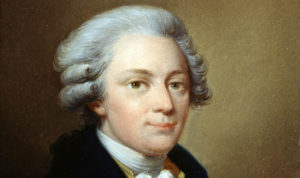
20. Mozart was able to listen to music just once and then write it down from memory without any mistakes.
21. Mozart was a master of every type of music he wrote. He was a child star, one of the greatest pianists of his generation, and the most well known composer in Europe by the age of 20. However, even with all this, he spent most of his life searching for a job.
22. He could write music before he could write words.
23. The music Mozart played as a child was called the “gallant style,” which was a part of a larger artistic movement known as Rococo. It was noted for its more jocular, florid, and playful style. Mozart would later move away from the gallant style to become an archetype of the classical style.
24. First coined in 1993, the Mozart Effect is the belief that listening to Mozart’s music can improve a person’s IQ.
25. Mozart’s music has been credited with helping those with epilepsy, boosting the milk production of cows, and boosting the IQ of unborn babies. A Swiss sewage treatment center has now claimed that Mozart can help microbes break down sewage waste. The center’s preferred composition is The Magic Flute.
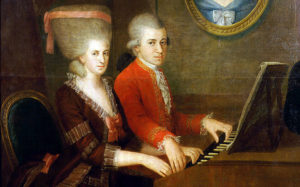
26. No one is sure where Mozart’s body is. He was buried according to the custom of the time, in a simple grave. He had no graveside ceremony or even a grave marker.
27. Mozart’s father described Mozart’s birth as a miracle from God because he seemed too small and weak to survive.
28. He was the first person to compose piano concertos as we know them today. Piano concertos are lively conversations between the piano and the orchestra.
29. While Mozart earned substantial money from his successful operas, he was an extravagant spender and often ended up in financial straits.
30. Count Franz von Walsegg commissioned Mozart to write his famous requiem. However, he wanted Mozart to leave his name off of the requiem mass so that the count could pass it off as his own work.

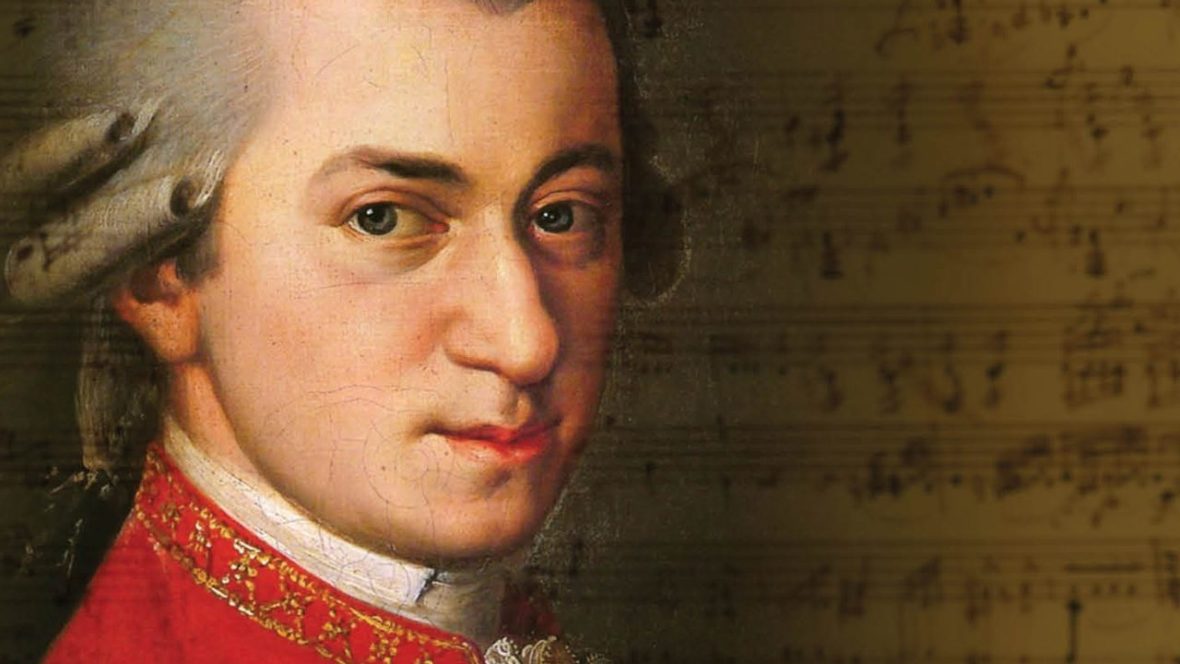


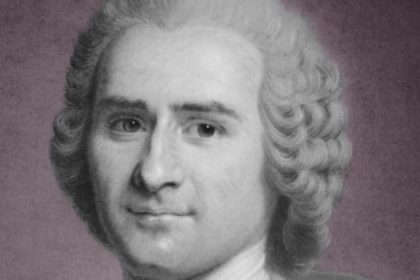
One Comment
Pingback:
June 2, 2018 at 2:43 pm